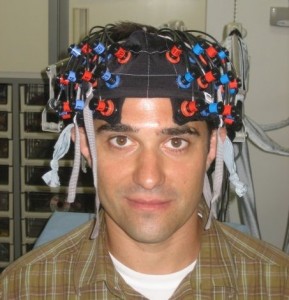 Joy Hirsch, Ph.D., Professor of Psychiatry and Neurobiology, Yale School of Medicine. Joy Hirsch has recently been recruited to Yale University to head a new Brain Function Laboratory leaving her previous position as Professor of Neuroscience at Columbia University where she was the Director and founder of the university-wide Functional MRI Research Center and the Program for Imaging and Cognitive Science, PICS.Her research on the human brain has focused on understanding principles of the relationships between the brain, mind, and behavior, and the translation of these advances to serve medical applications. Current new directions for her laboratory at Yale aim to understand the neural processes that underlie interpersonal communication and, in particular, neural mechanisms that are engaged during interpersonal interactions including eye-to-eye and face-to-face contact as well as verbal communication including talking and listening. These new investigations open a novel era of neural investigations that focus on multiple interacting brains rather than the more traditional approaches focused on single brains, and aim to impact social conditions related dynamic neural coupling between dyads. Professor Hirsch has published over 120 peer-reviewed scientific papers and chapters, is a popular world-wide lecturer on the brain, and served as a curator for the 2010-2011 Brain Exhibit at the American Museum of Natural History. She was awarded the prestigious Gamow Science prize in 2009 for her accomplishments in science and was one of the five women scientists featured in the 2011 World Science Festival. Professor Hirsch has been an active teacher at both Columbia University and at Yale University, and has mentored many student trainees at all levels of the academic pathway. Contact: joy.hirsch@yale.edu Joy Hirsch, Ph.D., Professor of Psychiatry and Neurobiology, Yale School of Medicine. Joy Hirsch has recently been recruited to Yale University to head a new Brain Function Laboratory leaving her previous position as Professor of Neuroscience at Columbia University where she was the Director and founder of the university-wide Functional MRI Research Center and the Program for Imaging and Cognitive Science, PICS.Her research on the human brain has focused on understanding principles of the relationships between the brain, mind, and behavior, and the translation of these advances to serve medical applications. Current new directions for her laboratory at Yale aim to understand the neural processes that underlie interpersonal communication and, in particular, neural mechanisms that are engaged during interpersonal interactions including eye-to-eye and face-to-face contact as well as verbal communication including talking and listening. These new investigations open a novel era of neural investigations that focus on multiple interacting brains rather than the more traditional approaches focused on single brains, and aim to impact social conditions related dynamic neural coupling between dyads. Professor Hirsch has published over 120 peer-reviewed scientific papers and chapters, is a popular world-wide lecturer on the brain, and served as a curator for the 2010-2011 Brain Exhibit at the American Museum of Natural History. She was awarded the prestigious Gamow Science prize in 2009 for her accomplishments in science and was one of the five women scientists featured in the 2011 World Science Festival. Professor Hirsch has been an active teacher at both Columbia University and at Yale University, and has mentored many student trainees at all levels of the academic pathway. Contact: joy.hirsch@yale.edu |
 J. Adam Noah, Ph.D., Associate Research Scientist, is a research faculty member of the Brain Function Laboratory experienced in computational systems and methods of brain imaging and application functional near-infrared spectroscopy to clinical and basic neuroscience research. His background in patient care and rehabilitation via the use of virtual reality interventions contributes a significant segment to the lab and its future directions. Adam is experienced in recording and data analysis techniques associated with functional near-infrared spectroscopy (fNIRS). His focus in the lab extends his previous interests and expertise using functional brain recording techniques combined with video games as tools to understand mechanisms of motor control, decision-making and cognitive function. Contact: adam.noah@yale.edu. J. Adam Noah, Ph.D., Associate Research Scientist, is a research faculty member of the Brain Function Laboratory experienced in computational systems and methods of brain imaging and application functional near-infrared spectroscopy to clinical and basic neuroscience research. His background in patient care and rehabilitation via the use of virtual reality interventions contributes a significant segment to the lab and its future directions. Adam is experienced in recording and data analysis techniques associated with functional near-infrared spectroscopy (fNIRS). His focus in the lab extends his previous interests and expertise using functional brain recording techniques combined with video games as tools to understand mechanisms of motor control, decision-making and cognitive function. Contact: adam.noah@yale.edu. |
 Xian Zhang, Ph.D., Associate Research Scientist, is a research faculty member of the Brain Function Laboratory experienced in neural physiology and mathematics. His research interest include computational neuroscience, signal processing, and neuroimaging technologies, such as electroencephalography (EEG), fNIRS, and fMRI and their applications in psychiatry, vision science, social interactions, and decision making. Contact: xian.zhang@yale.edu Xian Zhang, Ph.D., Associate Research Scientist, is a research faculty member of the Brain Function Laboratory experienced in neural physiology and mathematics. His research interest include computational neuroscience, signal processing, and neuroimaging technologies, such as electroencephalography (EEG), fNIRS, and fMRI and their applications in psychiatry, vision science, social interactions, and decision making. Contact: xian.zhang@yale.edu |
 Ray Cappiello has been a Research Project Manager for the Hirsch laboratory research team for over 15 years, prior to Yale at Columbia University, and before that, at Memorial Sloan-Kettering Cancer Center. His research role includes management of active grants, financial oversight, and coordination of all components of the research. Ray also develops neuroimaging paradigms, and provides quality assurance and calibrations of laboratory equipment and stimuli for behavioral tests, generation of visual and auditory stimuli, data acquisition, subject management, maintenance of project summaries, regulatory compliance. Contact: raymond.cappiello@yale.edu. Ray Cappiello has been a Research Project Manager for the Hirsch laboratory research team for over 15 years, prior to Yale at Columbia University, and before that, at Memorial Sloan-Kettering Cancer Center. His research role includes management of active grants, financial oversight, and coordination of all components of the research. Ray also develops neuroimaging paradigms, and provides quality assurance and calibrations of laboratory equipment and stimuli for behavioral tests, generation of visual and auditory stimuli, data acquisition, subject management, maintenance of project summaries, regulatory compliance. Contact: raymond.cappiello@yale.edu. |

